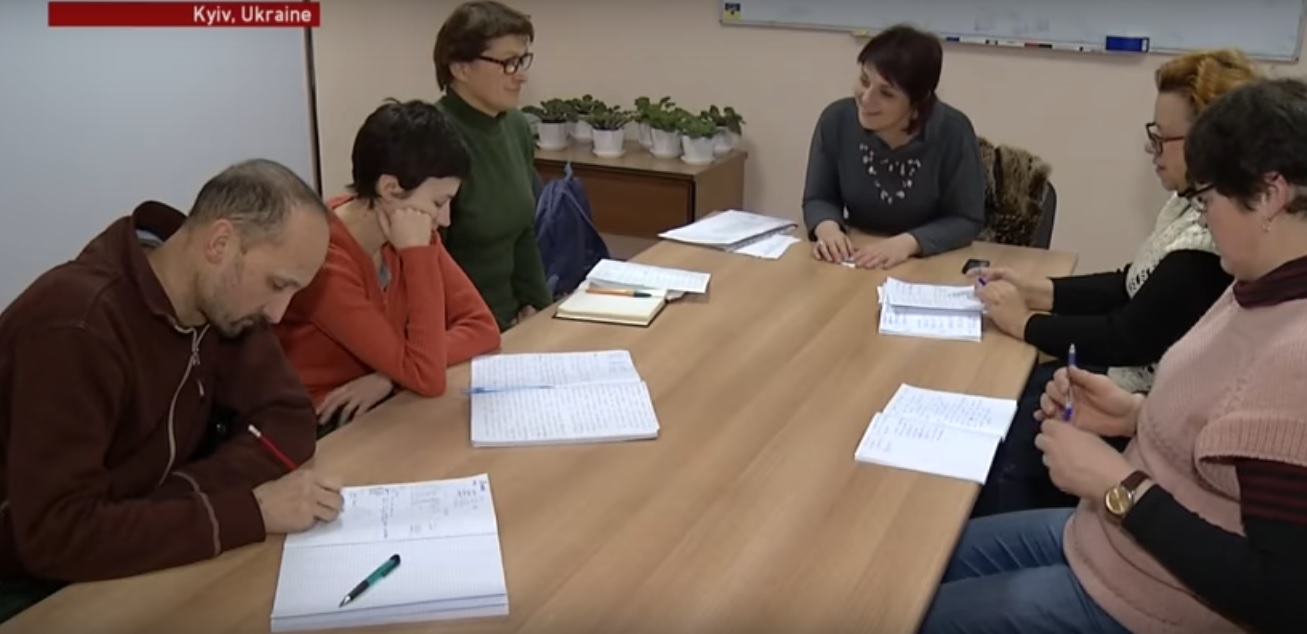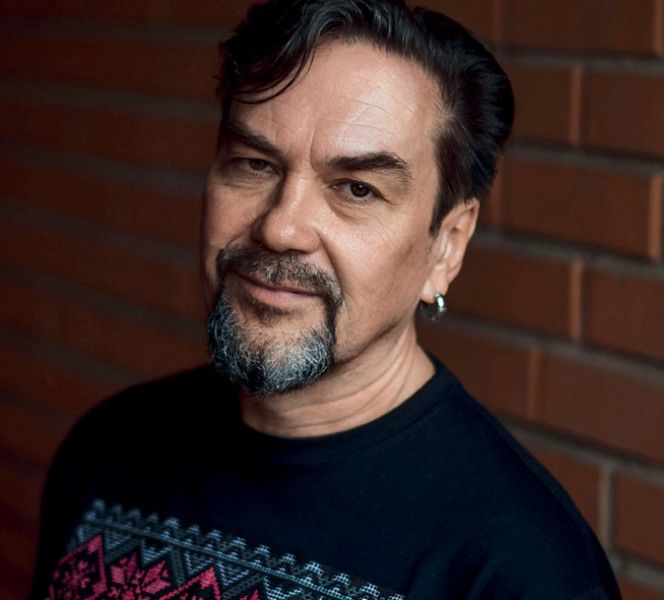The extensive free course of Ukrainian teaches basic vocabulary as well as working Ukrainian for those who need it in their everyday work environment. The students are originally from Russia, others were born in Kyiv, but have been brought up speaking Russian.
In this class, mistakes mean progress. The teacher Tetiana Krynytska is convinced that a friendly atmosphere are vital for her students' success:
“Our first class was organized during the Euromaidan revolution. Many people came because of the patriotic wave. They were saying that a Ukrainian citizen should be ashamed of not knowing the national language. Ukrainian is fairly widespread now, but as volunteers and specialists, we would like to see more improvement.”

Oleksandr Avramenko teaches a Ukrainian-language course at a university. He was born in Zaporizhzhia which is in southeastern Ukraine. In his family he mostly spoke Russian... But it's the Ukrainian language which has given him almost celebrity-like status. Most of his students are famous Ukrainians from all walks of life.
People started to recognize him on the street when his lessons appeared on TV. These video lessons were quickly followed by a textbook.
“In my line of work, I try to get people interested in the roots of the language by making it attractive. If a textbook is published, it has to be professional, in the Oxford format. If we make a video, it must be well done. In order to destroy the old stereotype that Ukrainian is a language of the villages, anecdotes or folk songs,” says Avramenko.
Illia Lukash is a TV journalist who was born into a Ukrainian family in Kyrgyzstan. During the Euromaidan Revolution his family urged him to rediscover his roots back in Ukraine.
Lukash originally thought that he couldn't come to Ukraine because he didn't know the language well. And that's partly why he decided to learn the language by himself:
“I was living in Kyiv for one month already, but despite my numerous requests to friends to speak Ukrainian with me, so that I could get used to it, after the first or second glass of wine they usually said - "Look, we're tired! Let's speak Russian now". I realized that it wouldn't work and that I had to move to Lviv to learn the language at least well enough for the daily routine.”
In two months time Illia was able to hold a conversation in Ukrainian. He also managed to finish reading his first Ukrainian book. As time went on he was able to write his first article in the language of his ancestors.
Sociologists at the Pew Research Institute in the US have conducted a survey in 14 countries. The question was about the importance of language as a nation's identity. American, British, French, Polish, and Hungarian citizens agreed with the statement. But what about the Ukrainian people? Here are some opinions of people in Kyiv:
“Ukrainians must know the Ukrainian language, but they don't have to necessarily speak it all the time. We have many Russian-speaking people, and I believe that the Russian language must also be present, and we shouldn't undermine it.”
“I personally speak Russian, but I see myself as a Ukrainian. And I love my country.”
“I was speaking Ukrainian before the Euromaidan, the language issue was extremely important to me. But the current situation proves that the language of communication doesn't determine a real Ukrainian.”
“Everyone has the right to speak the language they like, but it seems to me that Ukraine is moving towards it's roots. More and more people are starting to speak Ukrainian.”



